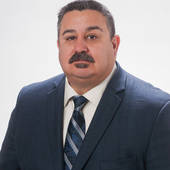he bill contains numerous modifications relating to several regulatory activities under the Department of Business and Professional Regulation (DBPR). The bill:
amends various provisions of the home inspection licensing program (scheduled to become effective July 1, 2010). Changes include modifying the definition of home inspection services, eliminating the business license (certificate of authorization), authorizing applicants to take the licensure examination without having to obtain DBPR approval, requiring a criminal history check for applicants, providing disciplinary action for failure to meet standards of practice adopted by the DBPR, and providing additional rulemaking authority;
amends various provisions of the mold-related licensure program (scheduled to become effective July 1, 2010). Changes include eliminating the business license (certificate of authorization), authorizing applicants to take the licensure examination without having to obtain DBPR approval, clarifying that the two-year degree requirement must be an associate of arts degree or equivalent (with 30 semester hours in certain courses), requiring a criminal history check for applicants, providing disciplinary action for failure to meet standards of practice adopted by the DBPR, and providing additional rulemaking authority;
A. EFFECT OF PROPOSED CHANGES:
Mold Assessors and Mold Remediators
Present situation
Currently, there are companies in Florida that hold themselves out to be mold assessors or mold remediators or conduct mold related services. The licensure and regulation of mold-related services are specified in part XVI, chapter 468, F.S., and go into effect on July 1, 2010. This part provides for the creation of a regulatory program in the DBPR. Part XVI creates a regulatory scheme, provides definitions, scope of practice, employment guidelines, continuing education, accountability, rules, licensure, fees, and penalties. There is no professional board.
"Mold assessment" means a process that includes the sampling and evaluation of data obtained from a building history and inspection to formulate an initial hypothesis about the origin, identity, location, and extent of mold growth.
3 "Mold remediation" means the removal, cleaning, sanitizing, or demolition of mold or mold-contaminated matter that was not purposely grown at that location.4
Effect of proposed changes
The bill amends s. 20.165, F.S., to expand the statutory structure of professional boards established within the Division of Professions of the DBPR to include a mold services "program" that is not regulated by a professional board.
The bill amends various provisions of the mold services licensing program. It amends s. 468.8413(1) and (2), F.S., to authorize applicants to take the licensure examination without having to obtain prior DBPR approval. The bill amends s. 468.8413(2), F.S., to clarify that a mold remediator or mold assessor must have at least a 2 year associate of arts degree or the equivalent, with at least 30 semester hours in microbiology, engineering, architecture, industrial hygiene, occupational safety or a related field. The bill also creates s. 468.8413(4)(d), F.S., requiring applicants to submit fingerprints for criminal background checks.
The bill amends s. 468.8418, F.S., to eliminate the requirement for businesses offering mold-related services to obtain a certificate of authorization. It amends s. 468.8421(1), F.S., to require insurance coverage of at least $1 million for both preliminary and post-remediation mold assessment. The bill amends s. 468.842, F.S., to provide a disciplinary violation for failing to meet standards of practice adopted by the DBPR.
The bill amends s. 468.8423, F.S., to provide new grandfathering requirements. Qualifications include certification by a state or national association that requires successful completion of a proctored examination for certification and completion of at least 60 hours of verifiable education for an assessor and 30 hours of education for a remediator, or demonstrate three years' minimum experience as a mold assessor or mold remediator; comprised of 40 invoices for mold assessments or remediation at the time of application.
In addition to one of the foregoing, grandfather applicants must not have had a mold assessor or mold remediator license or a license in a related field, as defined by the bill, revoked at any time, suspended within the past 5 years, or a fine assessed in excess of $500 within the past 5 years.
The bill authorizes the DBPR to investigate validity of invoices and take disciplinary action for filing of false information. Grandfather applicants must comply with the criminal background, good moral character and insurance requirements of this part. Grandfather applications must be postmarked no later than March 1, 2011.
The bill prohibits unlicensed activity enforcement until July 1, 2011.
The bill specifies broad rule making authority of the DBPR to "adopt rules to administer this part."

Comments(0)